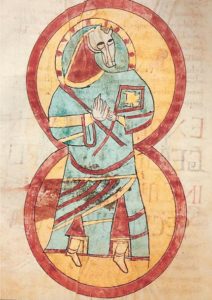Les Cent Nouvelles Nouvelles : interdisciplinary workshop on ms Glasgow Hunter 252
Dear Colleagues,
Proposals are invited for papers to be delivered at a forthcoming interdisciplinary workshop on MS Glasgow Hunter 252, ‘Les Cent Nouvelles Nouvelles‘ (University of Glasgow, 16-17 September 2011). The aim of the conference is to reassess and expand our knowledge of the unique surviving manuscript of tales attributed to members of the court of Philippe le Bon, Duke of Burgundy (1396-1467). Particularly welcome would be submissions relating to the following themes :
* Scripta and codicology of MS Hunter 252
* Decorative schemes and illuminations
* Form, function and language of the tales
* Social and cultural context
* Reception of the work in the early modern period
This workshop is organised in partnership with the Université du Littoral Côte d’Opale (Dunkirk), where a joint international conference entitled ‘Autour des Cent Nouvelles nouvelles: sources et rayonnements, contextes et interprétations’ will be hosted on 20-21 October 2011.
Webpage :
http://www.gla.ac.uk/schools/humanities/events/conferences/conferenceonmsglasgowhunter252/

Titles and abstracts (approx. 300 words) should be sent to Dr J. Simpson, SMLC French, University of Glasgow
(james.simpson@glasgow.ac.uk)
Peter Davies
Geoffrey Roger
Jim Simpson
Graeme Small
Lien vers Colloque organisé par l’Université du Littoral – Côte d’Opale, Unité de recherche sur l’Histoire, les Langues, les Littératures et l’Interculturel (H.L.L.I.) – Centre de Recherche « Modalités du fictionnel » [ CALENDA ]
Images and words in exile : Avignon and Italy in the first half of the 14th century (1310-1352)
Images and words in exile : Avignon and Italy in the first half of the 14th century (1310-1352)
At the start of the fourteenth century, far-reaching political events rapidly changed the set-up of the Mediterranean basin and together distorted the ‘Ordo universalis’ through which the material and symbolic space of ‘Christianitas’ had, for centuries, been understood.
While the ‘topos’ of the Avignon papacy, or \”Babylonian Captivity\”, progressively took hold and Rome was increasingly portrayed as the new abandoned Jerusalem, the court of Avignon offered the opportunity for a political, cultural and artistic experimentation. The increasing use of the political tool of banishment, the proliferation of accusations of heresy, the bitterly contested ‘quaestio de paupertate’ and, from a mystic-theological perspective, the ‘quaestio de visione beatifica’, are ones of the ways in which the new Christianity attempted, on different scales, to redefine its identity though exclusion practices.
On a different level, self-exclusion, pursued or accepted, is a rediscovered path for self-affirmation. We need only think about, to give two examples, the new forms of eremitism and Dante’s ‘Commedia’, according to some the first modern work of the ‘Exilliteratur’ for the role accorded to the state of exile in constructing the figure of its author.
Exile, a mental image that has always been linked to the period of Avignon papacy, is the lens through which this interdisciplinary Conference aims to interpret the first half of the 14th century, from Henry VII’s imperial expedition which came to an unexpected end with his death at the gate of Siena, the moment when the irreversible nature of the Papal Curia’s transfer to France (1309-1313) became clear, up until the end of the papacy of Clement VI (1352).

Avignon BM 71, f. 3v. St Matthieu écrivant. XVe s. © IRHT/CNRS/BM Avignon
Firenze & Avignon, 7–11 April 2011
Program
Thursday 7 April, Firenze, KHI (Palazzo Grifoni)
9.00 am-9.15 am
Gerhard Wolf Opening Remarks
Session 1 Exclusion from the Civitas
9.15 am-2.00 pm
Chair: Jean-Claude Maire Vigueur (Roma)
Fabrizio Ricciardelli (Villa Le Balze) Le modalità dell‟azione politica a Firenze in età comunale
Matteo Ferrari (Pisa) Tradizione figurativa del bando politico tra Lombardia e Toscana
Gaetano Curzi (Chieti) La “condanna” dei Templari. Tracce materiali e memoria negata tra Francia e Italia
11.30 am, Coffee break
Irene Bueno (Firenze/Leiden) Come estirpare le cattive piante. La riflessione sull‟eresia nell‟opera esegetica di Jacques Fournier
Fabio Massaccesi (Bologna) Da Avignone a Ravenna: Giovanni XXII e Aimerico di Châtelus. Immagini e politica in Santa Maria in Porto Fuori
1.15 pm, Discussion
Session 2 Self-exclusion from the Civitas
3.00 pm-8.00 am
Chair: Sofia Boesch Gajano (Roma) Antonio Montefusco (Roma) Exsul pauper. Auto-esclusione e condanna nella tradizione monastica e francescana
Stefania Paone (Cosenza) L‟immagine di Pietro del Morrone tra l‟Abruzzo, Roma e Avignone
4.30 pm, Coffee break
Marianne Besseyre (Paris) Les “Vies des Pères”, un manuscrit italien du XIVe siècle entre France et Italie
Alessandra Malquori (Firenze) L‟immagine dell‟anacoreta tra mistica e predicazione. Pittura tra Firenze e Pisa nella prima metà del Trecento
Luca Marcozzi (Roma) Retorica dell‟esilio nella poesia lirica di Petrarca
7.00 pm, Discussion
Friday 8 April, Firenze, KHI (Casa Zuccari)
Workshop Works in Progress on Exile
9.00 am-10.30 am
Moderators: Elisa Brilli and Laura Fenelli (Firenze)
Anna Fontes Baratto (Paris) Présentation d‟un projet de recherche du CERLIM sur l‟exil dans la littérature italienne médiévale
Alessandra Malquori (Firenze) Atlante dei temi figurativi della Tebaide
Visit I Firenze, Santa Croce
11.00 am-1.00 pm
Andrea De Marchi (Firenze) Un‟altra Santa Croce. Una visita selettiva e una lettura in filigrana dei primi programmi decorativi.
Saturday 9 April, Avignon, Musée du Petit Palais
10.30 am-10.50 am
Dominique Vingtain Opening Remarks
Session 3 Displaced Persons
10.50 am-3.30 pm
Chair: *to be confirmed.
Giuliano Milani (Roma) Appunti per una rilettura del bando di Dante
Dieter Blume (Jena) Francesco da Barberino. The Experience of Exile and the Allegory of Love
12.20 am, Lunch Break
Sylvain Piron (Paris) Les exils de Opicinus de Canistris
Marina Gagliano (Paris) “Hierosolymitanus exul inter et super flumina Babilonis indignans scripsi”. La polemica antiavignonese di Petrarca e il modello di Dante exul
2.50 pm, Discussion
Evening Lecture
4.30 pm
Agostino Paravicini Bagliani Avignon, une autre Rome?
Sunday 10 April, Avignon, Musée du Petit Palais
Session 4 Avignon : the Making of a Capital
9.00 am-1.30 pm
Chair: Gerhard Wolf (Firenze)
Joëlle Rollo-Koster (Kingston) Avignon‟s Capitalization and the Legitimation of Transiency
Xavier Barral-Altet (Rennes-Venezia) Afficher l‟exile à l‟extérieur du palais. L‟entrée monumentale du Palais des Papes d‟Avignon
Barbara Bombi (Canterbury) The “Avignon Captivity” as Means of Success. The Circle of the Frescobaldi
11.15 am, Coffee break
Etienne Anheim (Versailles) Simone Martini à Avignon: une histoire en négatif ?
Francesca Manzari (Roma) Le opportunità offerte dall‟esilio. Elementi multiculturali e libertà d‟innovazione nella miniatura avignonese del Trecento
1.00 pm, Discussion
Session 5 Exchanging Glances
2.30 pm-6.00 pm
Chair: Serena Romano (Lausanne)
Maria Alessandra Bilotta (Paris) Avignon comme Bologne? Remarques sur le rôle d‟Avignon dans la production des manuscrits juridiques
Claudia Bolgia (Edinburgh) Images in the City. Presence, Absence and „Exile‟ in Rome in the first half of the 14th century
4.00 pm, Coffee Break Theresa Holler (Firenze) L’Aldilà della Cappella Strozzi. I domenicani, l’esilio di Dante e il ritorno dell’Inferno
Francesco Pasquale (Venezia) Napoli traslata. Roberto d‟Angiò e la sua corte ad Avignone
5.45 pm, Discussion
Monday 11 April, Université d’Avignon (salle 2E02)
Session 6 Imagining Avignon‟s Cartography
9.00 am-1.00 pm
Chair: Michel Laclotte (Paris)
Stephan Zanke (Augsburg) Imagined spaces? John XXII, the papal Registers and European Policy (1316-1334)
Gottfried Kerscher (Trier) Hofordnung- Rangordnung-Raumordnung. Disruptive Changes in Avignon
Tina Sabater (Palma de Mallorca) Intorno all‟influenza della corte di Avignone sull‟arte. La pittura maiorchina del XIV secolo
11.15 am, Coffee break
Rosa Alcoy (Barcelona) Avignone e la Catalogna dei Bassa
Alessandro Tomei (Chieti) Opere e artisti in esilio tra Italia e Provenza (con qualche ritorno). Modelli, stili e iconografie
1.00 pm, Discussion
Visit II Avignon
3.00 pm
Marie-Claude Léonelli (Avignon) and Dominique Vingtain (Avignon) Décors peints médiévaux avignonnais, entre France et Italie
Participation in the Conference is free, contact us for information on the visits Scientific Coordination : Elisa Brilli, Laura Fenelli, Gerhard Wolf
Contacts:
Dr. Elisa Brilli: Brilli(at)khi.fi.it
Dr. Laura Fenelli: Fenelli(at)khi.fi.it
www.khi.fi.it
+ 39 0552491153
Quelle: KHI Florenz
(Source : Maria Alessandra Bilotta)
Royal Manuscripts : a Conference at the British Library
 ROYAL MANUSCRIPTS
ROYAL MANUSCRIPTS
A Conference at the British Library, London 12-13 December 2011
In 1757 King George II presented around 2000 manuscripts of the royal library to the newly founded British Museum. These manuscripts, collected by the kings and queens of England from the ninth to the sixteenth centuries, form the unique collection held by the British Library known simply as ‘Royal.’ The Royal collection preserves the medieval and Renaissance libraries of the kings and queens of England, and includes within these illuminated manuscripts most of the surviving medieval paintings owned by them.
From 11 November 2011 to 11 March 2012, approximately 150 royal manuscripts will be featured in a major exhibition at the British Library. The research for this exhibition has been funded by a grant from the Arts and Humanities Research Council. The research team is headed by Dr Scot McKendrick, Head of History and Classical Studies, The British Library, and Professor John Lowden, Courtauld Institute of Art, University of London. As part of this project the British Library will hold an international conference in December 2011 to encourage collaboration on these manuscripts and discussion of contextual issues of power, stylistic influence, political motivations and rivalries with Europe, public and private devotion, education and knowledge, and artistic production in a variety of media.
Scholars from all disciplines are invited to submit proposals for twenty-minute papers. We hope to have sessions on the historical context and formation of the royal collection, conservation and preservation issues, buildings and royal palaces, and inventories and medieval libraries, in addition to papers devoted to illuminated manuscripts in the Royal collection. Papers that treat renowned Royal manuscripts and those focusing on lesser known manuscripts are equally welcome. The conference proceedings will be published by British Library Publications.
If you would like to take part, please send a short abstract and a concise CV by 31 May 2011 to Dr Kathleen Doyle, Curator of Illuminated Manuscripts, kathleen.doyle@bl.uk or The British Library, 96 Euston Road, London, NW1 2DB.
Catalogue of Illuminated Manuscripts, http://www.bl.uk/catalogues/illuminatedmanuscripts/welcome.htm
Prochaine séance du Séminaire \”Histoire des bibliothèques anciennes\”
La prochaine séance du séminaire \”Histoire des bibliothèques anciennes\” de l’Institut de recherche et d’histoire des textes, qui est dédié cette année à la bibliothèque du collège de Sorbonne (voir pour rappel le programme en pièce jointe) aura lieu comme prévu vendredi 4 mars de 9h30 à 12 h30 en salle Jeanne Vielliard (1er étage). Le thème retenu pour cette séance est \”Les maîtres, les œuvres et la bibliothèque commune du collège\” et nous aurons le plaisir d’écouter une communication de Gilbert Fournier (CNRS-IRHT) : Vue oblique sur la bibliothèque commune du collège de Sorbonne au tournant des XIVe et XVe siècles
Pages
Auteur du blog : Jean-Luc DEUFFIC

Commentaires recents
- dans Le livre d’heures et de raison de Maximilien Turpin, conseiller à la Gouvernance de Lille ( † 1704)
- dans Un ami nous a quitté: Gwenaël Le Duc (12 octobre 1951- 24 décembre 2006)
- dans René de Chasteaubriant (+ ca 1500), chevalier pèlerin pour la Terre Sainte, comte de Guazava au royaume de Fez
- dans René de Chasteaubriant (+ ca 1500), chevalier pèlerin pour la Terre Sainte, comte de Guazava au royaume de Fez
- dans Le «Maître du Policratique de Charles V» : un enlumineur breton ?
Visites depuis 10/03/2020
- 4
- 44
- 706



